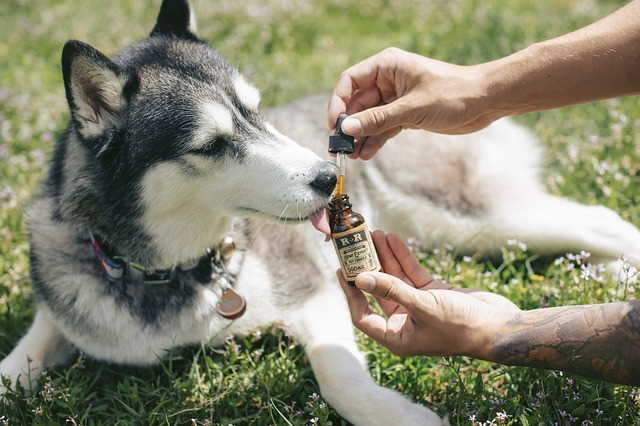Every now and then, our pets can suffer from certain painful diseases such as pain, post-traumatic stress, irritation, skin disorders, excessive hair loss, etc. If you wish your pets to boost their vitality or help their veterinarian care, CBD can be used as a food supplement or as an additional medication.
Hemp operates on the endocannabinoid system receptors, which are found not only in the human body but also in all animals, fish and molluscs. CBD works in animals in the same manner as in the human body and it is also best to use the substance for the prevention of pain or inflammation. It also serves to protect the nervous system, and can also help to protect the nervous system.
Nowadays, you may feel like you’re reading about CBD oils and other new CBD items that have a positive effect on health and wellness—for humans and for our dogs and cats.
So what precisely are the CDB items for pets? Are they still working? More specifically, are they safe?
It can be hard to sift through all the commercial chatter and get down to the truth about CBD for dogs and cats. I have assembled this reference article to help you understand more about terminology, possible advantages, and stuff you can remember while talking to your veterinarian and shopping for items.
What’s CDB?
CBD is the acronym used for cannabidiol, a chemical compound obtained from either hemp or marijuana plants.
CBD works on the endocannabinoid systems (ECS) in humans and livestock, including dogs and cats. The endocannabinoid pathway is a unique signaling system in the brain and body that influences many essential functions, including how the pet sounds, walks and responds.
When processed and used in oils, chews and other products, CBD can potentially aid with a range of different symptoms, including soothing, healing and potentially even osteoarthritis pain relief for our dogs.
Among the benefits of CBD oil as a food additive can be found the following:
Improvement of the mental status of the animal (calmness, relaxation); faster and healthy digestion; improved immune system; relief of constant pain; improvement of the neurological processes of the animal; comfortable condition of the animals during their lifespan. In addition, medical CBD medications aim to resolve much of the health issues faced by our dogs. For example, their usage helps to combat: fear and tension (which may contribute to irritating behaviour); general infections or pain; treatment of acute or persistent diseases; age-related complications in animals; gastrointestinal disorders.
CBD has the best performance in the type of oil
Though CBD pet treats or tablets may be on the market, the safest form of transmission of cannabinoid is by the use of oils/tinctures. The explanation for this is simple: CBD oil is much easier to take than edibles. Like people, eating food will have consequences that are far more severe than what you’ve signed up for. This is because it can be impossible to calculate the quantity of weed ingested in the edible when you can’t clearly see. With tinctures, the calculations are correct enough that your pet can get exactly what it wants when it’s needed.
How are Cats and Dogs responding to CBD?
An important study is also required to closely compare the distinctions in the endocannabinoid mechanism of pets and how this system reacts to phytocannabinoids (synthetic and plant-based cannabinoids) such as CBD.
There are two main forms of cannabinoid receptors in the pet body—CB1 and CB2. These receptors tend to regulate and monitor the pet’s immune and central respiratory system, which can potentially affect inflammation, pain, asthma, and behaviour.
There are three key parts of the endocannabinoid system: the receptors, the endocannabinoids and the enzymes. Endocannabinoids are manufactured in large quantities and connect to the receptors, particularly in periods of stress, sickness or injury.
Phytocannabinoids, including CBD, function in the same manner as endocannabinoids by binding to cannabinoid receptors.
Dogs have the highest CB1 receptor density in the brain relative to all other animals, including humans. Latest publications have shown that cats tend to have lower uptake and likely better removal of CBD relative to dogs.
CBD OIL DOSAGE
Animals can be very selective, particularly when it comes to the use of medications, so you can apply cannabis oil to the food or drip on dry food.
The dose of CBD oil depends on the weight of the animal. As a nutritional supplement and prevention, it is advised to begin with 3% CBD drops 1 drop 1-2 times a day. For bigger animals, oil can be used 1-2 times a day for 2-3 drops.
You can see the effects of maintenance therapy within a week of using CBD. The dosage of CBD hemp oil can then be increased as needed.
If you are using CBD for severe diseases, we suggest that you begin again with a low dose of 5 percent CBD or 10 percent CBD.












